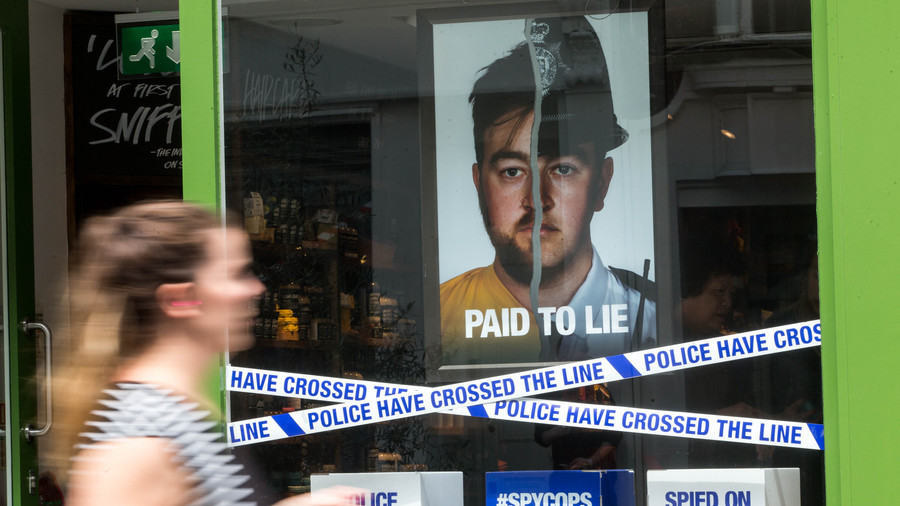On Thursday (16 October 2020), the dubbed ‘SpyCops’ bill passed its third reading in parliament. 313 MPs voted in favour of the bill, whereas only 98 voted against it. Due to the overwhelming support it received in the House of Commons, the bill will now be passed onto the House of Lords for approval.
The SpyCops bill, legally known as the Covert Human Intelligence Sources (CHIS) bill is an extremely powerful piece of legislation that will allow state security agencies to break the law without any prosecutable repercussions.
Security Minister James Brokenshire told parliament that the bill “is being introduced to keep our country safe and to ensure that our operational agencies and public authorities have access to the tools and intelligence that they need to keep us safe.”
However, many individuals and human rights NGOs would attest otherwise.
As was revealed in the tragic case of environmental and social rights activist Kate Wilson activist who was coerced into starting a 2-year sexual relationship with an undercover police officer, such protocols have already been happening regardless of their illegalities.
Wilson was one of 8 women who had publicly came forth with testimony that undercover police officers had coerced them into initiating sexual relationships with them.
All 8 women successfully managed to sue the Met in the High Court for these disgusting clandestine police operations.
The number of victims however appears much larger, with Wilson testifying that “over 30 women now know that they were deceived into intimate, sexual relationships with undercover officers.”
Wilson herself was reported to have been spied on by at least 6 police officers, a great violation of Article 8 of the European Convention on Human Rights which states that individuals have the right to have their private and family lives respected. It was only until the court case that the Met had admitted to breaching this specific act.
What makes this information even harder to fathom is the fact that some undercover officers “are on six-figure salaries” (Middle East Eye), with their income coming directly out of the taxpayers’ pockets without them even knowing.
This new bill will mean that the aforementioned illegal police protocols will become legal.
The bill also doesn’t rule out grooming children for undercover undercover agent positions and neither states that the torture and murder of children will be exempt from the dropping of charges.
Not only will this allow more legal exemptions for the police, but will also massively benefit the British military.
Despite last month’s passing of the Overseas Operation bill which essentially made it legal for military personnel to commit heinous acts of war crimes and even rape without legal repercussions, the Tory government is infatuated with granting even more liberties beyond the point of justification.
Some have even highlighted that this bill could also enable security and intelligence agencies to authorise murder, torture and sexual violence on domestic territory.
Alongside the military, the special forces units on domestic counter-terrorism will benefit from the new bill. As is already known after the leaking of the counter-terrorism police organisations list in January of this year, the police are already heavily fixated on the surveillance and subsequent interception of leftist organisations.
The new MI5 anti-left task force also attests to the increasing hostile surveillance from the government towards our organisation and others.
During the process of passing of the bill through the House of Commons, Keir Starmer once again showed his complicity with the Tory government’s bill.
Disgusted at the increased militarisation and clandestine surveillance that the bill would grant the police force, 2 Labour MPs resigned from Starmer’s front bench and four more resigned from party roles.
The negative implications that this bill could have for Britain’s communists, the left and the labour movement are monumental and should not be dismissed
We cannot be complacent with our existence and must be extremely vigilant during these encroaching times with the people we share information to and the way we present ourselves online especially.
Tomasz Nowak



